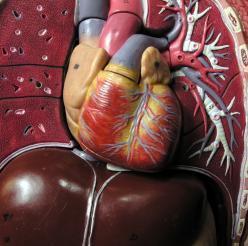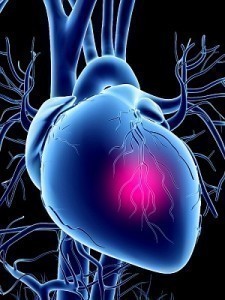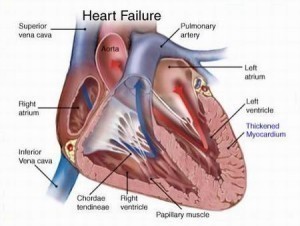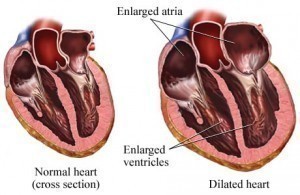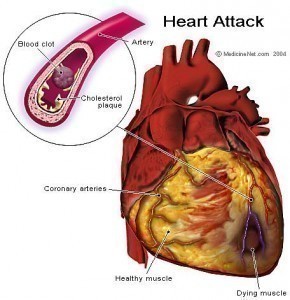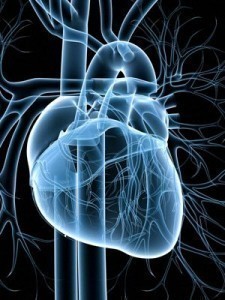Heart Disease
Heart Disease is defined as any disease that may affect the heart. Heart disease is prevalent in many western countries and has been declared to be the leading cause of death in the United States. Coronary heart disease is the most common type of heart disease and is approximately responsible for as much as 70% of deaths per year. It has been concluded that lowering bad cholesterol levels and controlling blood pressure may decrease an individual’s risk of developing this possibly life-threatening condition. The types of major heart disease are: cardiovascular disease, ischaemic heart disease, coronary heart disease, inflammatory heart disease, heart failure, valvular heart disease, hypertensive heart disease, and cardiomyopathy. In most or all instances of heart related conditions medical assessment and management and or quite often emergency treatment will be essential. It is possible to be afflicted with heart disease and be unaware of the condition if it is asymptomatic or in other words does not present any symptoms. Thus, it is very important that people over a certain age consider having regular medical check ups at least once within any given year. The sooner the diagnosis is made the better the chances of surviving the disease for a prolonged period.
Causes and Risk Factors
In some cases the cause of heart disease may be unknown. However there may be a genetic factor that contributes to the development of the disease, that is, some types of heart disease may have a familial association. It may also be induced by an infection for example in the case of inflammatory heart disease. It has also been observed that heart disease may develop in persons who suffer from hypertension or high blood pressure or in persons who have high levels of bad cholesterol.
Common risk factors will include but may not be limited to the following:
- Having high levels of bad cholesterol and or low levels of good cholesterol
- Not partaking in sufficient amounts of physical activity or exercise.
- Currently being affected by hypertension or high blood pressure
- Experiencing menopause
- Being obese or being significantly overweight
- Being diabetic
- Smoking, especially when done excessively
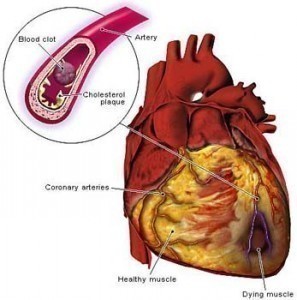
- Advanced age or being forty years and older
- Having a family history of the disease which may indicate a genetic predisposition to developing the specific condition.
- Being subject to a very stressful lifestyle
Symptoms
It is possible to have the disease and experience no symptoms for many years. It is also not unusual for the symptoms to resemble other equally or less serious conditions.
The general symptoms will include:
Shortness of breath or difficulty breathing. This symptom is common to most types of heart conditions and though it may be as a result of an allergic reaction or pulmonary condition it is still important to seek medical advice if this symptom suddenly develops. It is frequently worsened by physical activity or when lying flat.
Chest pains or Angina pectoris will be localized in the chest area although it may migrate to other areas including the shoulder blades, neck, jaw, left arm and upper abdomen. It may feel like a piercing pain or pressure accumulating in the chest.
Syncope or fainting.
Fatigue or feeling more tired than normal. It may sometimes interfere with an individual’s ability to carry out regular activities.
Having spells of dizziness and lightheadedness
Experiencing heart palpations which may be described as the sudden recognition of the beating heart. The beats may be irregular, with bouts of quickening and slowing.
Noticing signs of oedema or swelling of the legs.
It is also possible to experience nausea, vomiting fever and chills in some types of heart disease especially those associated with infections.
Treatment
The treatment for heart disease will be dependent on the type of heart disease. In most cases medication will be prescribed including antibiotics in defects triggered by an infection, or antianginal drugs to limit angina attacks or medications that may lower underlying high blood pressure and high cholesterol levels. It may also include surgery of some form to bypass defective arteries, insert implants for example artificial valves or to transplant a heart in very severe cases.
Much of the treatment will involve changes in lifestyle that may increase longevity. It may require the eliminating of smoking, performing moderate exercise, managing other conditions such as diabetes and or maintaining a healthy diet.
For more information on Heart Disease read:

